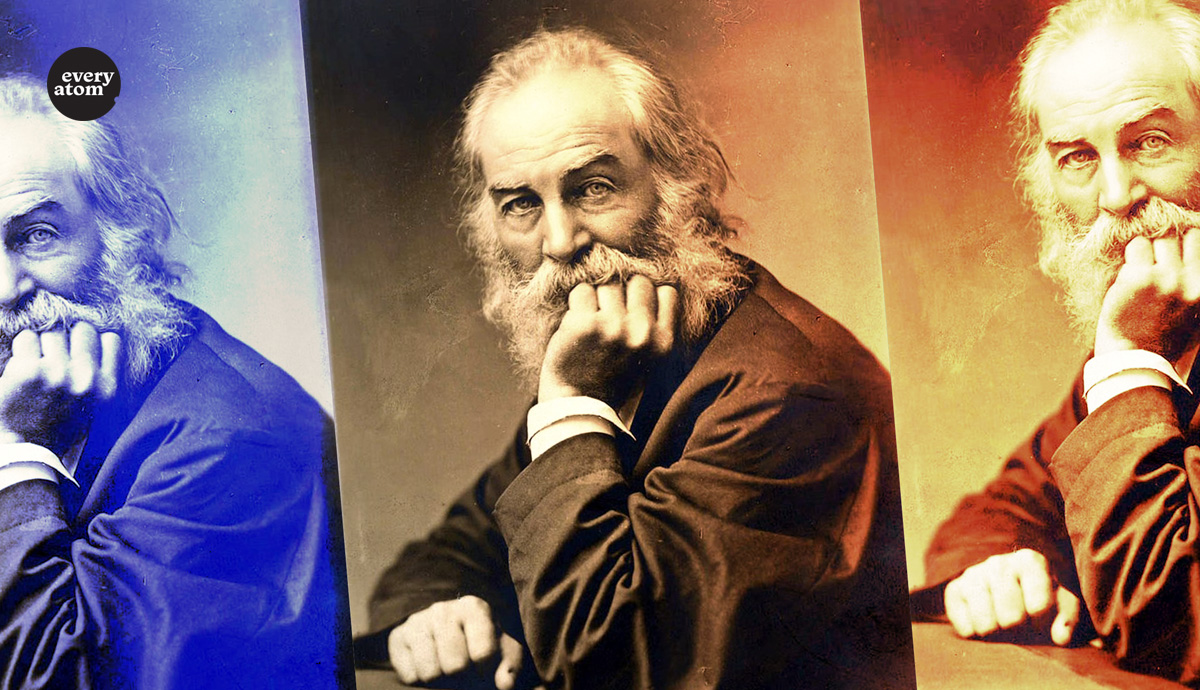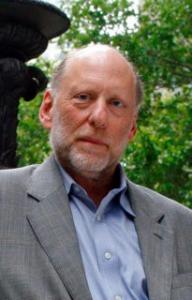Every Atom | No. 130
Introduction to Every Atom by project curator Brian Clements
Whitman, the great enumerator, enfolder of people, contradictions, and things, container of multitudes, “a kosmos,” specifies in the 1860 edition to Leaves of Grass that what he means by “kosmos” “includes diversity and is Nature.” Includes diversity but cannot be reduced to it. For the Kosmos is everywhere, everyone, a unity, at once many and one. All of the above.
Already in 1855, he heralded “the answerer,” declaring: “What can be answered he answers, and what cannot be answered he shows how it cannot be answered.”
“His welcome is universal,” Whitman writes of the answerer. “ . . . . the flow of beauty is not more welcome or universal than he is.” Because he is universal, his shrine is equality. Equality is not sameness, for no one is the same as anyone else. It is not to be measured in things. He does not idolize the division of labor. He does not worship boundaries. Everyone acknowledges him as one of their own:
...the mechanics take him for a mechanic,
And the soldiers suppose him to be a captain . . . . and the sailors that he has followed the sea,
And the authors take him for an author . . . . and the artists for an artist,
And the laborers perceive he could labor with them and love them;
No matter what the work is, that he is one to follow it or has followed it,
No matter what the nation, that he might find his brothers and sisters there.
The English believe he comes of their English stock,
A Jew to the Jew he seems . . . . a Russ to the Russ . . . . usual and near . . . .removed from none.
Whoever he looks at in the traveler's coffeehouse claims him,
The Italian or Frenchman is sure, and the German is sure, and the Spaniard is sure . . . . and the island Cuban is sure.
The engineer, the deckhand on the great lakes or on the Mississippi or St Lawrence or Sacramento or Hudson or Delaware claims him.
The gentleman of perfect blood acknowledges his perfect blood,
The insulter, the prostitute, the angry person, the beggar, see themselves in the ways of him . . . . he strangely transmutes them,
They are not vile any more . . . . they hardly know themselves, they are so grown.
You think it would be good to be the writer of melodious verses,
Well it would be good to be the writer of melodious verses;
But what are verses beyond the flowing character you could have? . . . . or beyond beautiful manners and behaviour?
Or beyond one manly or affectionate deed of an apprenticeboy? . . or old woman? . . . or man that has been in prison or is likely to be in prison?
So, in no uncertain terms, Whitman makes poetry that points to the limits of poetry. If the states themselves are “essentially the greatest poem,” this is because of the “flowing characters” of their people,” their “manly” and “affectionate deeds.” A people is made of the character of its members, welcomed from everywhere, offering welcome, no stranger to any.
Make America great again, he might have said, and meant it.
Recommended
Nor’easter
Post-Op Appointment With My Father
Cedar Valley Youth Poet Laureate | Fall 2024 Workshop







